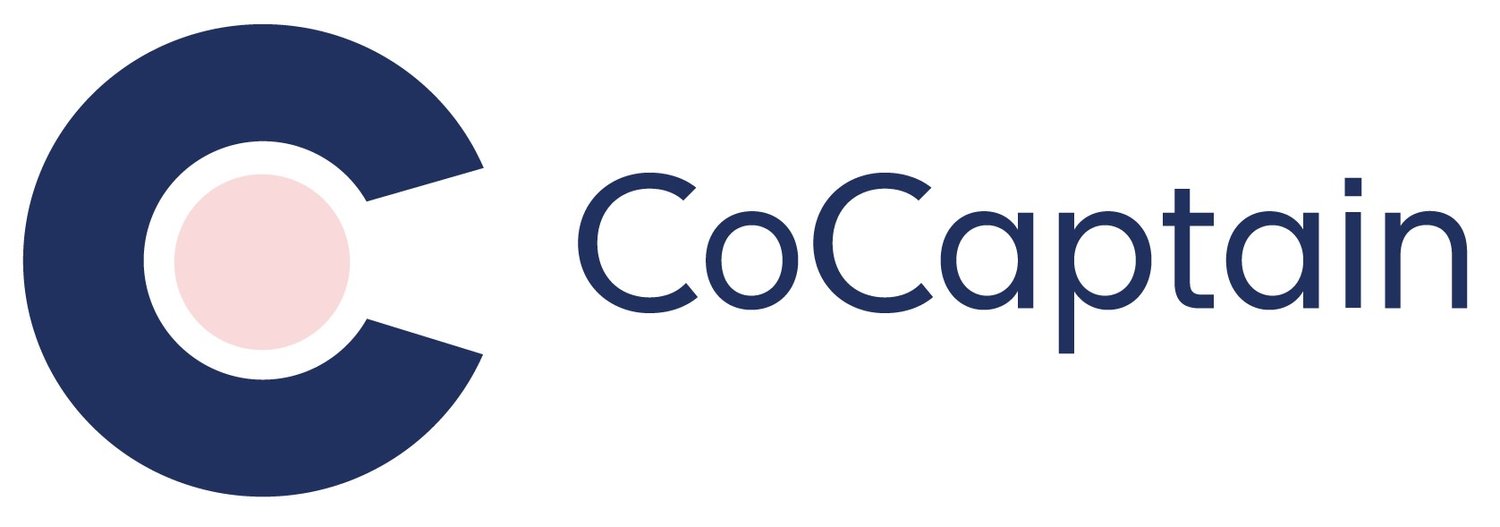Want to Become an Executive Coach? Follow This Guide
If you’re searching for how to become an executive coach, then you probably know about the benefits of executive coaching; you’re aware of the difference between executive and business coaching, the different services, and how executive coaches are preparing the leaders of today and tomorrow.
The word is out, and as more people, businesses, and organizations become aware of the value of executive coaching, the executive coaching boom will continue to shoot upwards.
For those who have been considering a career change for a while or those who are just becoming aware of the endless possibilities of success that an executive coaching career offers, here’s our most comprehensive guide to help you become an executive coach in 6 basic steps.
1.Your Motivation Will Determine Your Executive Coaching Path
Clarify your reasons for becoming an executive coach to determine your coaching approach and path.
Determining your background, motivations, and skills should all tell you about the executive coach you want to become and should influence what sort of clients you will be most equipped to help.
Motivation and Fulfillment
First, sit down and ask yourself: “Why do I want to become an executive coach?”
Are you tired of what you’re currently doing? Do you have more time on your hands that you would like to monetize? Do you want to get more out of your degree or work experience to help others? Do you want to improve other people’s lives with your skills? Do you want to make as much money as possible?
Many executive coaches that I’ve talked to describe the moment they realized they wanted to become executive coaches was when they realized they weren’t fulfilled by their current job but wanted to use those job skills to help others.
Figure out why you are becoming a coach because those reasons will determine the principles through which you carry out your coaching services.
Pick a Niche
Although you don’t have to set this in stone right away, it’s good to start considering what types of clients you want to coach and what type of executive coach you want to become to get the right certifications and training.
Picking a niche or branch of executive coaching should be influenced by your educational background, professional experience, life goals, and interests.
Ask yourself these questions:
What clients will benefit most from my background and experience?
A 2018 study by the American Management Association states that when hiring a coach, 68% of people revealed they rely most heavily on the candidate’s personal and professional experience.
This is why it’s important to consider your experience with a certain subject or business area because it directly correlates with who will hire you for your services.
What are you good at? What degrees do you have under your belt? What training have you received throughout your career? Your answers will begin to paint the picture of the coaching areas in which you will be an asset to your future clients.
Some people have a wide variety of skills and have acquired experience in various professional areas; naturally, niches spill into other niches. People like this can expertly coach and help a variety of clients. Of course, this comes with more advanced coaching experience and skills.
What am I most passionate about?
Think about the niches and clients you imagine you would be most drawn to helping.
For example, a female CEO might have a passion for harnessing leadership capabilities within the new generation of female leaders; or a former business owner might have a lot of business knowledge coupled with a passion for mindfulness meditation.
Your personal and professional interests and passions should help you determine who you would be most equipped to help. Coaching requires a passion for the issues at hand. If you can’t convey passion for helping your client, it will be difficult for them to see your services' value.
2. Training and Certifications
ICF Certification
Does a coach have to be certified?
No, there is no universal consensus within the coaching industry as to what certification program a coach needs. But this is your sign that you should definitely get certified.
A professional coaching certification is a way to prove coaching competency to clients—that you’ve put in the work, time, and money to become a well-rounded coach with the ability and skills to help them.
International Coaching Federation (ICF) is the world’s most respected coaching organization. There are three tiers of coaching certifications:
ACC — Associate Certified Coach, requiring 60 hours of training and 100 hours of experience
PCC — Professional Certified Coach, requiring 125 hours of training and 500 hours of experience
MCC — Master Certified Coach, requiring 200 hours of training and 2,500 hours of experience
There are thousands of coaching programs for executive coach training and schools that offer programs certified by the ICF that prepare you for executive coaching certification.
Coach Training Program
It’s important to know that you should look for an ICF-certified program before you start looking.
When a program is certified by the International Coach Federation, it means it's a reputable coach training program; the program has undergone extensive reviews by industry experts to surpass the highest standards that the ICF requires.
First of all, there are three types of coach training programs accredited by the ICF.
Accredited Coach Training Program (ACTP)
This is the most comprehensive program for those new to the coaching industry.
Approved Coach Specific Training Hours (ACSTH)
This program is a bit less comprehensive than an ACTP because it allows for more flexibility.
Continuing Coach Education (CCE)
This program is best for those coaches who have completed basic ICF training and want to build on their existing coaching knowledge and experience.
Your coach training will be one of the most important decisions you will make in your coaching career; like any school, it will greatly influence your coaching philosophy and principles and help mold you into the coach you want to become.
Here’s a list of some of our favorite coach training programs—look around to find the right coach training program for you.
3.Coaching Methodology
Your coaching plan and methodology should incorporate an effective coaching model at the forefront.
Choose an existing successful executive coaching model or create your own. The importance of a coaching model will be taught to you in your coaching program, as well as different types of models you can pick and choose from to incorporate into your practice.
In order to get their clients the coaching outcomes they paid for, executive coaches use effective and practical leadership coaching models.
An effective coaching model is also useful because it gives a client a clear idea of how you will get them from point A to point B.
Your overall coaching plan and regular sessions should specify the following:
Desired Coaching Model(s)
You can implement your coaching model into your overall strategy as well as day-to-day sessions. Some coaches layer several coaching models into their sessions, while others use one to encompass their coaching services.
Means of Communication
Decide how often you and your client will meet face-to-face, virtually, or through messaging. Consider using pre-recorded lessons, training webinars, or even create your own e-learning courses online; these programs are beneficial when you are short on time and have more clients to tend to.
Pre-Outlined Sessions
Before a session, you should have prepared questions to ask and topics that need to be covered. However, you want to set aside time for topics and issues brought up by your clients. You want to be prepared but also ready to listen and adapt.
Personalization
Each client should have a personalized plan that outlines their goals, the necessary steps to reach them (plan of attack), and the desired learning strategy that will work best for said client.
Leadership Development
It’s important for you to focus on developing your client’s core leadership skills, no matter your executive coaching method. The cornerstone of every coaching session should touch on developing and maintaining these core skills.
Coaching is an intangible service, but an effective coaching model is a tangible system that will set you apart from the competition.
4.Set Your Rate
Whether you will be coaching full-time or as a side hustle, it’s important to consider your experience, training, certifications, and skills to set your pricing model.
According to Tana Heminsley at the ICF, there are three different pricing strategies to consider:
Cost-Based Pricing
Your main objective is to get a return on investment and cover costs by setting prices primarily influenced by accounting data.
Competition-Based Pricing
Your price is mainly influenced by your competition’s prices, assessing past trends on competition and anticipating future trends to remain competitive.
Customer Value-Based Pricing
This pricing model is mainly influenced by the subjective and perceived customer value of the product. This approach asks, “How can we create additional customer value and increase customer willingness to pay, despite the intense competition?”
Furthermore, you should decide whether you will charge customers:
A lump sum
Hourly, daily, weekly, or monthly
Membership pricing
On a sliding-scale
A sliding-scale model is becoming more popular as coaching platforms and coaches focus on making executive coaching accessible for everyone—no matter their budget.
When charging on a sliding-scale model, you set a range from which clients can choose to pay depending on their income.
Most people value coaching services and will pay as much as they can; others might be financially unable to pay much initially, but as your executive coaching services bring them success, they will be able to increase their payments.
5.Find a Place to Offer Your Services:
Launching a coaching career on your own, especially as a newbie, coaches have to spread their resources thin and focus their energy on maintaining a business instead of focusing on coaching their clients—increasing the risk of failure.
Without coaching experience or a stamp of approval from an organization or individual, offering your coaching services on your own can be increasingly difficult.
Offering your executive coaching services on a coaching platform is the best way around these problems.
When an up-and-coming executive coach is evaluated by a coaching platform and its team of experts, clients are more willing to trust a new coach because they have already been vetted by the coaching website.
CoCaptain
Coaching platforms like CoCaptain encourage their coaches’ autonomy; a coach can choose to use their preferred coaching model and strategies and set their own prices and availability.
After assessing a coach’s individual services, CoCaptain then matches you to a client that’s the perfect fit.
More and more coaches are now choosing to launch their executive coaching careers on coaching platforms because they can connect with a broader audience and easily sign on new clients.
Bottom Line
Most leadership coaches that I know can agree that reaching your goals is an amazing feeling, but using your skills to help others continuously reach their goals? That’s another level of amazing.
If becoming an executive coach is the next step in your career, follow these steps and immerse yourself in everything there is to know about coaching at our blog.



